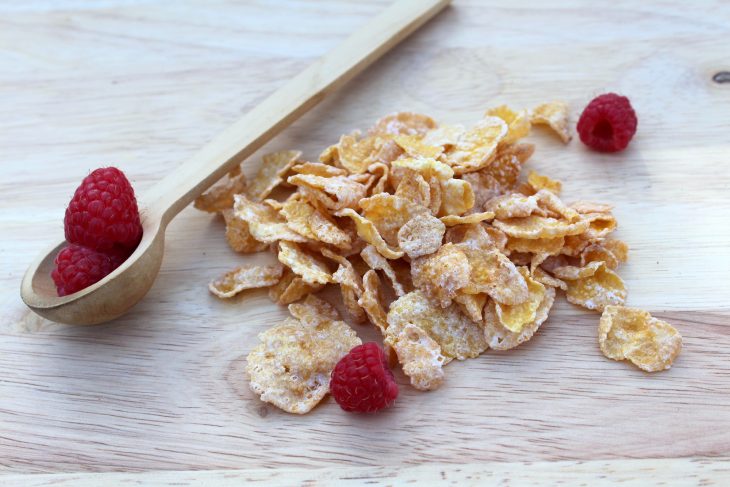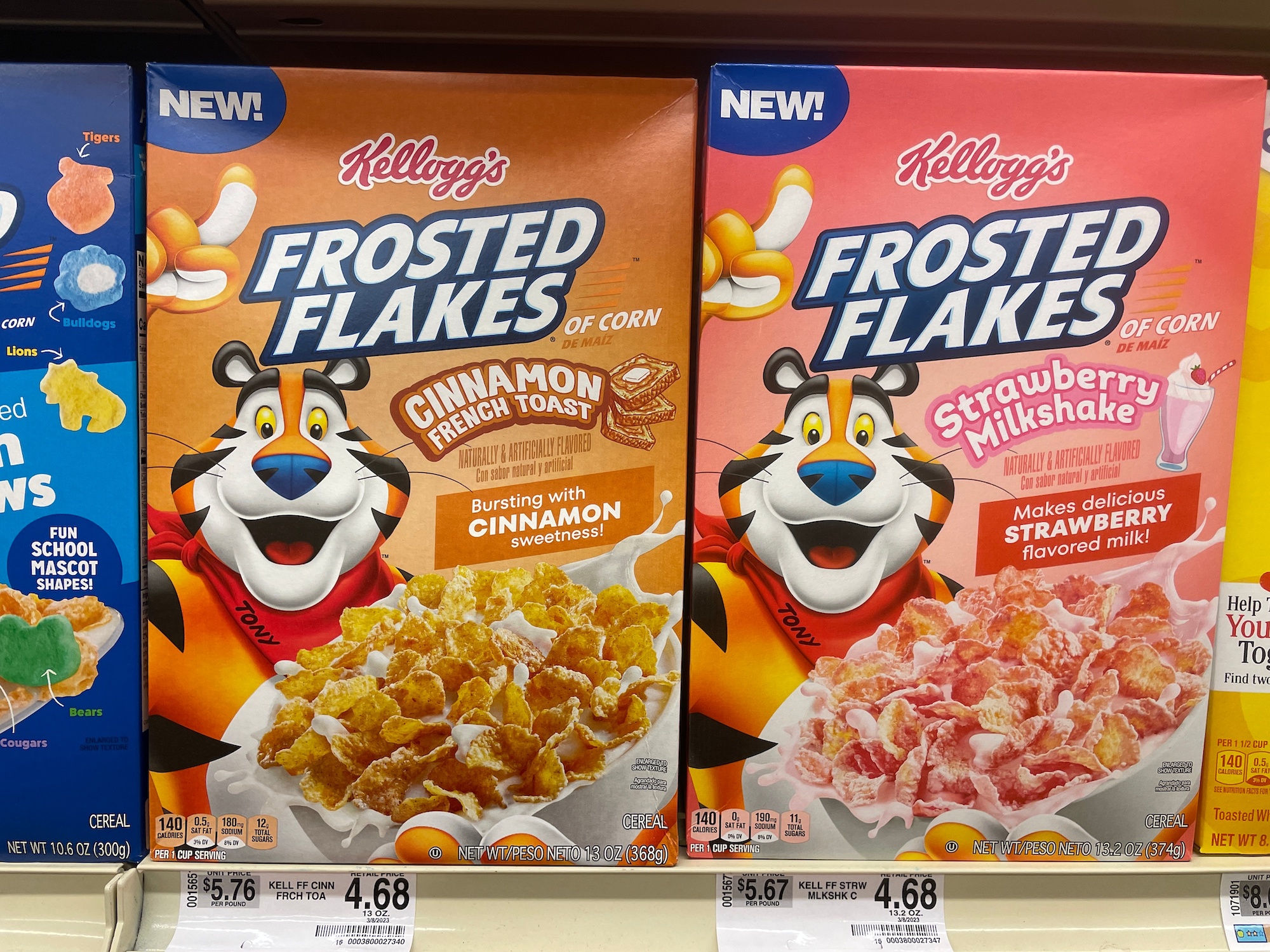
Imagine waking up to a bowl of crispy, golden flakes, perfectly coated with a delightful frosting. Frosted Flakes, the iconic breakfast cereal, has been a favorite among both kids and adults for generations. But have you ever wondered about the nutritional value of this scrumptious treat? In this article, we’ll delve into 20 Frosted Flakes nutrition facts that will leave you impressed and eager to savor every bite.
Calorie Count
A single serving of Frosted Flakes, which is about 3/4 cup or 28 grams, contains approximately 110 calories. This makes it a reasonable choice for individuals aiming to maintain a balanced calorie intake.
Carbohydrates for Energy
Carbohydrates are an essential source of energy, and Frosted Flakes provides about 26 grams of carbohydrates per serving. This energy boost can help kickstart your day with vitality.
Added Sugars
Frosted Flakes gets its irresistible sweetness from the frosting coating the flakes. However, it’s important to note that a serving of Frosted Flakes contains around 10 grams of added sugars. Moderation is key when enjoying this tasty cereal.
Essential Vitamins
Frosted Flakes is fortified with various vitamins, including niacin (B3), thiamin (B1), riboflavin (B2), folic acid (B9), and vitamin B12. These vitamins play a vital role in supporting overall health and well-being.
Enriched with Iron
Iron is crucial for maintaining healthy blood and supporting oxygen transport throughout the body. Each serving of Frosted Flakes contains 10% of the recommended daily intake of iron, making it a valuable addition to your breakfast routine.
Vitamin D Fortification
Vitamin D is essential for maintaining strong bones and teeth. Frosted Flakes is fortified with vitamin D, providing you with a tasty way to boost your intake of this important vitamin.
Low in Fat
Frosted Flakes is a relatively low-fat cereal option. A single serving contains only 0.1 grams of fat, making it a guilt-free choice for those watching their fat intake.
Cholesterol-Free
For individuals concerned about cholesterol levels, Frosted Flakes is a suitable choice. It is completely cholesterol-free, allowing you to enjoy a delicious breakfast without worrying about your heart health.
Good Source of Thiamin
Thiamin, or vitamin B1, is crucial for converting food into energy. Frosted Flakes provides approximately 10% of the recommended daily intake of thiamin, making it a valuable addition to your diet.
Riboflavin-Rich
Riboflavin, or vitamin B2, plays a vital role in maintaining healthy skin and vision. Each serving of Frosted Flakes contains around 10% of the recommended daily intake of riboflavin, contributing to your overall well-being.
Niacin for Metabolism
Niacin, or vitamin B3, is involved in various metabolic processes within the body. Frosted Flakes offers approximately 10% of the recommended daily intake of niacin, helping support a healthy metabolism.
Folic Acid Boost
Folic acid, or vitamin B9, is essential for cell growth and development. By enjoying Frosted Flakes, you can easily incorporate folic acid into your diet, with each serving providing approximately 25% of the recommended daily intake.

Vitamin B12 Addition
Vitamin B12 is crucial for maintaining a healthy nervous system and producing red blood cells. Frosted Flakes contains around 25% of the recommended daily intake of vitamin B12 per serving, supporting your overall vitality.
Fiber Content
Fiber aids in digestion and promotes a feeling of fullness. While Frosted Flakes is not particularly high in fiber, it still provides approximately 1 gram of dietary fiber per serving, contributing to a well-rounded breakfast.
Sodium Levels
It’s important to be mindful of sodium intake, especially for individuals with specific dietary requirements. Each serving of Frosted Flakes contains approximately 150 milligrams of sodium, which should be considered when planning the rest of your meals.
Protein Source
Protein is essential for building and repairing tissues, and Frosted Flakes offers a small but significant amount. With approximately 1 gram of protein per serving, it can contribute to your daily protein needs.
Fortified with Zinc
Zinc is important for boosting the immune system and aiding in wound healing. Frosted Flakes is fortified with zinc, providing you with a delicious way to support your immune health.
Calcium Content
Calcium is vital for maintaining strong bones and teeth. While Frosted Flakes is not a significant source of calcium, it still contributes a small amount to your daily intake.
Versatility in Serving Options
Frosted Flakes can be enjoyed in various ways. Whether you prefer it with cold milk, as a topping for yogurt, or even as a crunchy addition to your smoothies, there are endless possibilities to explore.
Balancing Indulgence and Nutrition
While Frosted Flakes may be a sweet treat, it can still be a part of a balanced diet when consumed in moderation. Combining it with other nutritious foods, such as fresh fruits or yogurt, can enhance the overall nutritional value of your breakfast.
Conclusion
Now that you’re armed with these 20 Frosted Flakes nutrition facts, you can make informed choices about your breakfast routine. Remember to savor each bowl with appreciation for the delightful blend of taste and nutrition that Frosted Flakes offers.
Frequently Asked Questions (FAQs)
Can Frosted Flakes be part of a healthy breakfast?
Yes, when enjoyed in moderation and balanced with other nutritious foods, Frosted Flakes can be a part of a healthy breakfast routine.
Are Frosted Flakes suitable for individuals with dietary restrictions?
Frosted Flakes contain gluten and may not be suitable for individuals with celiac disease or gluten sensitivities. It’s always important to check the packaging for specific dietary information.
Can Frosted Flakes be consumed by vegetarians?
Yes, Frosted Flakes do not contain any animal-derived ingredients and are suitable for vegetarians.
Are there any alternatives to Frosted Flakes for those seeking a lower-sugar option?
Yes, there are several low-sugar or sugar-free cereal options available on the market that can be considered as alternatives to Frosted Flakes.
Can Frosted Flakes be enjoyed by people of all ages?
Frosted Flakes can be enjoyed by individuals of various age groups, but it’s important to consider individual dietary needs and preferences when incorporating them into a balanced diet.
Was this page helpful?
Our commitment to delivering trustworthy and engaging content is at the heart of what we do. Each fact on our site is contributed by real users like you, bringing a wealth of diverse insights and information. To ensure the highest standards of accuracy and reliability, our dedicated editors meticulously review each submission. This process guarantees that the facts we share are not only fascinating but also credible. Trust in our commitment to quality and authenticity as you explore and learn with us.
